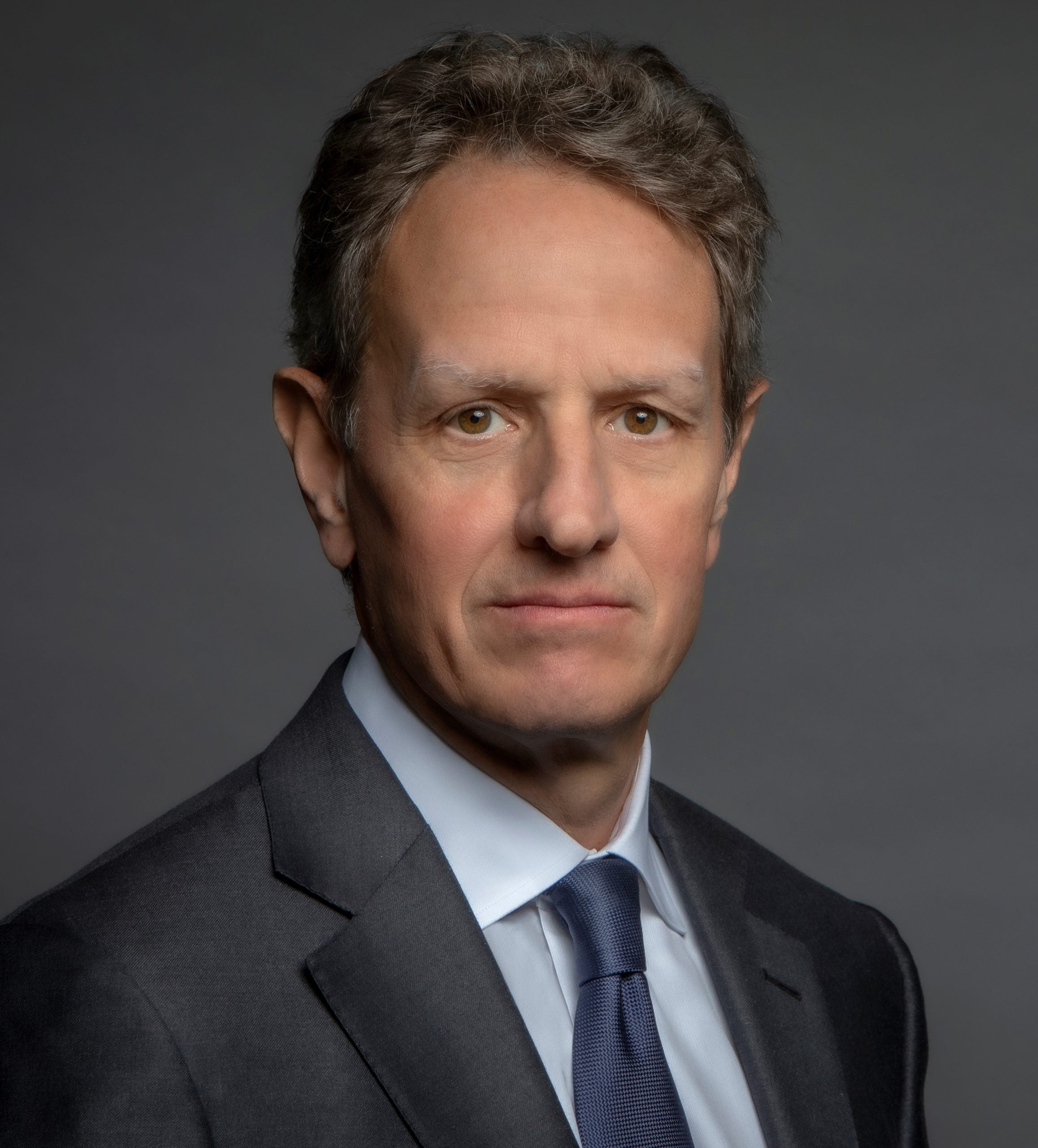
Timothy F. Geithner
Co-Chair, Aspen Economic Strategy Group
Chairman, Warburg Pincus
Timothy F. Geithner serves as Chairman of Warburg Pincus. Before joining Warburg Pincus, Geithner served as the 75th Secretary of the U.S. Department of the Treasury from 2009 to 2013. He previously served as President and Chief Executive Officer of the Federal Reserve Bank of New York from 2003 to 2009. He began his U.S. government career with the Treasury Department in 1988. Geithner is Chair of the Program on Financial Stability at the Yale University School of Management, where he is also a visiting lecturer. He is a member of the International Rescue Committee Board of Advisors. He is the Co-Chair of the Aspen Economic Strategy Group. He is a member of the Group of Thirty. Geithner holds a BA in Government and Asian Studies from Dartmouth College and an MA in International Economics and East Asian Studies from Johns Hopkins School of Advanced International Studies.